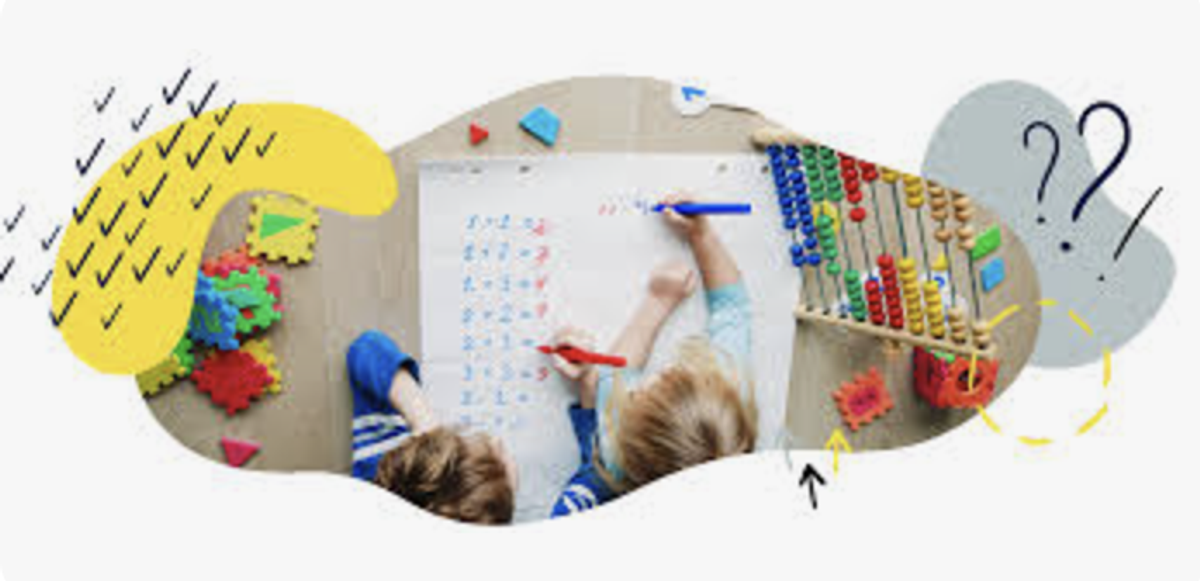Mathematics News
Ms Nellie Girgenti
Coordinator

Mathematics News
Ms Nellie Girgenti
Coordinator
Dear parents,
I’m sure that you will agree that parents want to help their children become numerate citizens and develop strong numeracy skills, but they may often feel uncertain about the best ways to support this. Being numerate involves using some mathematics. However, not everyone feels confident in their own mathematical abilities or believes they are "good" at maths.
One of the best ways we can help our children is to promote positive attitudes towards mathematics. For example, avoid making statements such as, ‘I was never any good at maths either’. Professor Jo Boaler is a Stanford University professor and a researcher of mathematics education. She has provided some interesting insights about mathematical mindsets and potential that may help parents to support their children in achieving their numeracy goals.
Consider the following statements.


Unfortunately, a lot of ‘school mathematics’ when we were at school was often taught without meaning, making it difficult for students to make sense of it. It may be that your own experience of mathematics has been limited to ‘school mathematics’. You may rely on procedures and rules that you cannot readily apply to everyday contexts.
At St Francis Xavier, we emphasise learning mathematics with understanding rather than remembering rules and procedures that may not ‘make sense’. Mathematics makes sense when taught with an emphasis on developing deep understanding.
There are lots of ways to solve maths problems. Some ways are more efficient than others, but we shouldn’t say that there is one right way to solve any given problem.
‘Mathematics is full of uncertainty. It is more about exploring and making conjectures, rather than coming up with the right answers’ (Boaler, 2016).
There are right and wrong answers in mathematics. However, we should focus on how the answers are achieved and value our children’s invented strategies for working out problems.


There is no such thing as a ‘maths brain’. Everyone (with a few exceptions who have severe learning difficulties) has the capacity to learn mathematics. Many believe that intelligence is unchangeable. But if you have a ‘growth mindset’, then you believe that you can achieve. You don’t give up when the work is challenging, or when you make mistakes.
“Mistakes are essential for learning and result in brain growth” (Boaler, 2016).
Finally, I would like to leave you with this reflective prompt from Professor Janette Bobis, a mathematics educator at the University of Sydney. She gives advice to families on helping their children feel good about maths.
“Many parents are scared of maths or think they just can’t do it, but it’s the worst thing you can tell your children…When parents tell their children that they themselves can’t do it, it means they’re communicating messages that it’s okay not to be good at maths, which can carry through high school.”
What beliefs about mathematics do you pass on?
How can you help your child to develop positive attitudes towards mathematics?
I hope the ideas and suggestions in this year’s newsletters have provided some helpful ways for you to support your children’s mathematical learning at home. By exploring mathematics in everyday moments, you can help build their confidence, curiosity and skills in a fun and meaningful way.


As we approach the festive season, I wish you and your family Christmas blessings and a restful, safe holiday break. May this time be filled with joy, togetherness and wonderful memories. Thank you for your continued partnership in your children’s education.
Warm regards,
Ms Nellie Girgenti
Coordinator and Year 4 teacher